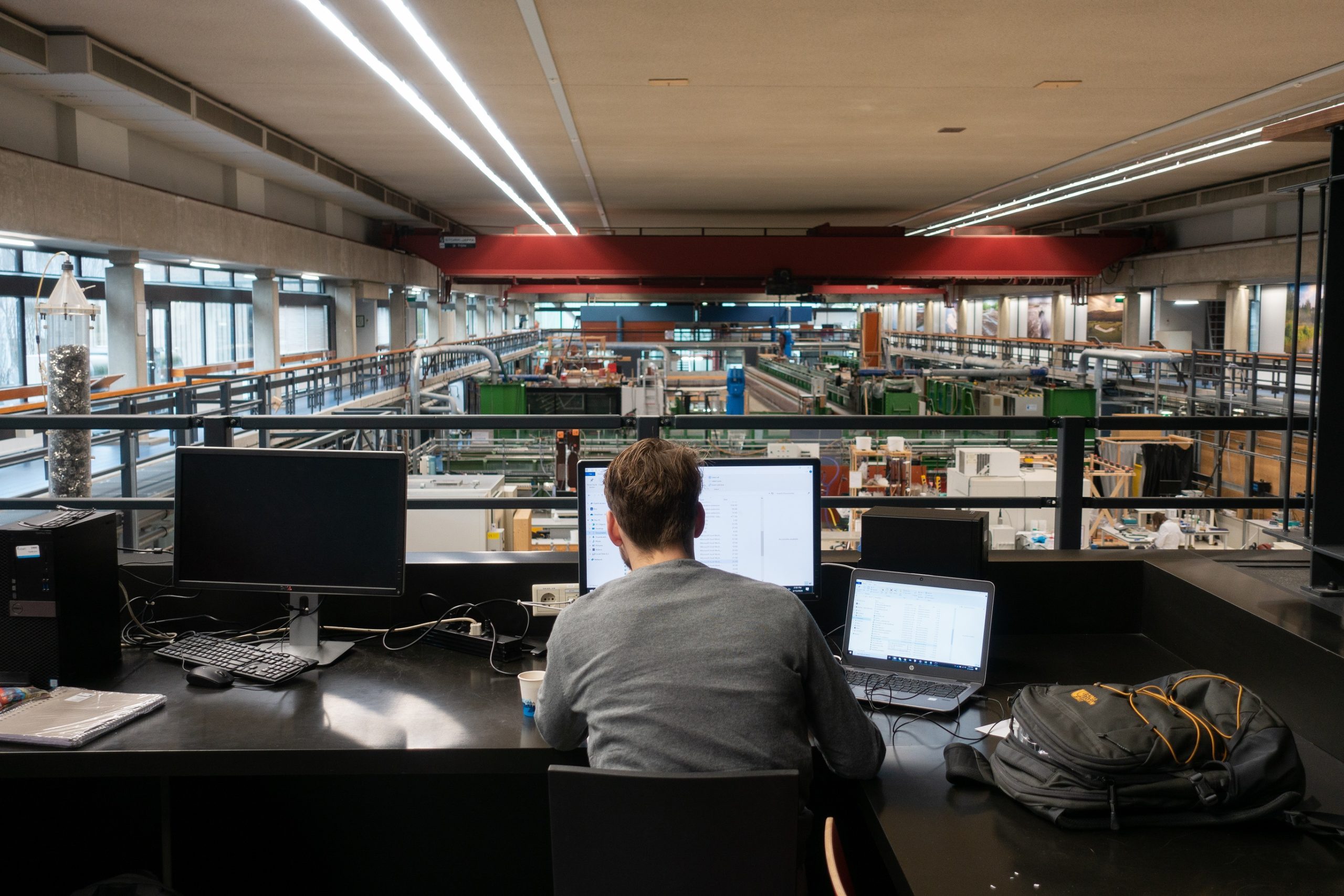Researchers on temporary contracts who have ‘corona delays’ are entitled to a contract extension of three months. But the qualification criteria are not clear to everyone.
The problems that PhD candidates and postdocs face vary across faculties. (Photo: Lucas de Leeuw)
Labs that are only open for brief periods, research projects that are unable to start and PhD candidates who are stuck abroad. It was already tough going for PhD candidates to complete their work within the prescribed two to four years, and now they are up against completely new problems because of the corona crisis.
In the face of this situation, Dutch universities agreed in their CAOs (collective labour agreements) last summer to reserve 0.45% of the so-called ‘wage margin’ in 2020 for extending the temporary contracts of researchers who have experienced problems this year because of the coronavirus. This applies to temporary postdocs, PhD candidates, teachers and their support staff.
EUR 1.5 million
What this means for TU Delft is that it will have access to a sum of about EUR 1.5 million. This sum will first be divided proportionately among the faculties according to the number of research staff on temporary contracts.
The problems that PhD candidates and postdocs face vary across faculties. For example, the Faculty of Aerospace Engineering (AE) is not affected by the temporary closure of laboratories, unlike the Faculty of Applied Sciences. However, AE reports that one of its PhD candidates is ‘having difficult personal circumstances’ because of the corona crisis. At the Faculty of Industrial Design Engineering (IDE), two PhD candidates may not be able to do their research at all or not start it on time. ‘Our listing shows that the pressure on the health care services is jeopardising these PhD candidates’ research, which is on a health project,’ writes Dean Ena Voûte.
Extreme cases
While EUR 1.5 million sounds like a lot of money, in practice the most ‘extreme cases’ will first be considered for compensation, says Director of Human Resources Ingrid Halewijn. PhD candidates and postdocs facing ‘corona delays’ should report to their supervisors. All eight faculties have also been requested to list the number of cases and individuals who need support. Ultimately, the deans will decide whether an application is justified or not.
Human Resources then checks the applications against the national criteria, explains Halewijn. “The researchers need to show that everything has been done to avoid delay. In practice, fourth year PhD candidates are more likely to qualify than third years. Third years have more room to catch up on delays.” Another starting point is to check if the research can be done differently or if the PhD candidate can obtain the doctorate without delay by limiting the research.
As little as possible
In practice, the interpretation of the term ‘extreme cases’ varies among faculties. The Faculty of Civil Engineering and Geosciences (CEG) interprets it to mean that as few people possible use the reserved wage margin. “Our starting point is that PhD candidates and postdocs would benefit from completing their research on time, and we will do everything we can to make this happen. Every piece of research faces uncertainties and much research faces setbacks that can delay it by months,” says a spokesperson. “Most future employers are more likely to value someone who completed their project on time despite the setbacks and shows flexibility.” The Faculty’s position reflects the position of the Economic Activities, Research Funding and Third Party Agreements ‘Corona Working Group’ headed by CEG Dean Jan Dirk Jansen.
At the start of October, AE was considering ‘a handful’ of people. IDE had gone through all the contracts that expired in 2020 and concluded that there are no ‘problem cases’ that require an extension. Dean Voûte said that “We did have one postdoc before summer who was unable to return home because of the travel restrictions. The project had enough financial room left to grant the postdoc a short extension.”
While PhD candidates and postdocs can report ‘corona delays’ to their supervisors themselves, in practice they know little about the regulation. “We know that the deans will decide who qualifies, but we don’t know what the criteria are. There’s not been any really clear communication about this. We offered to go through the guidelines, but this did not happen,” says Vittorio Nespeca, Chair of the University PhD Council.
How many and which TU Delft employees are up for contract extensions is at yet unclear. Some universities, such as the University of Leiden, have already finalised their lists. In the case of Leiden, the temporary contracts of 84 PhD candidates and postdocs will be extended (in Dutch).
The first round of applications will run up to 31 October. After that, Halewijn says that “If there is any budget left, we will divide the money again among the faculties.”
Do you have a question or comment about this article?
a.m.debruijn@tudelft.nl


Comments are closed.